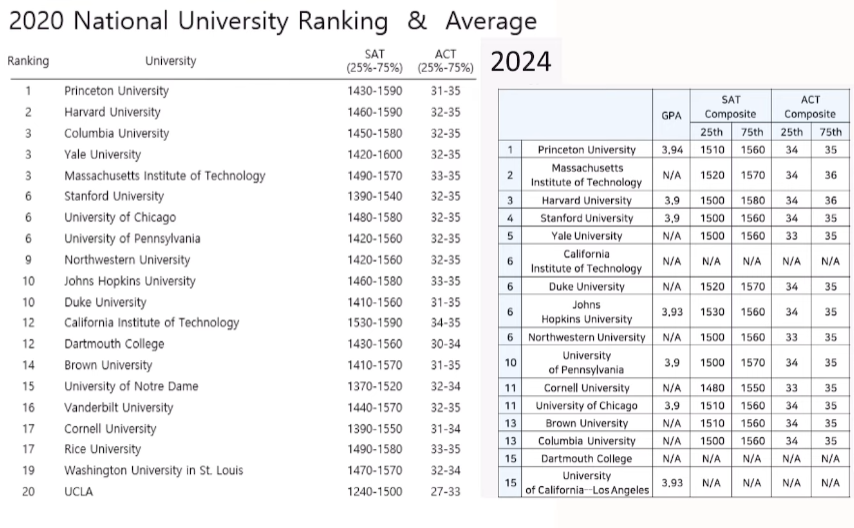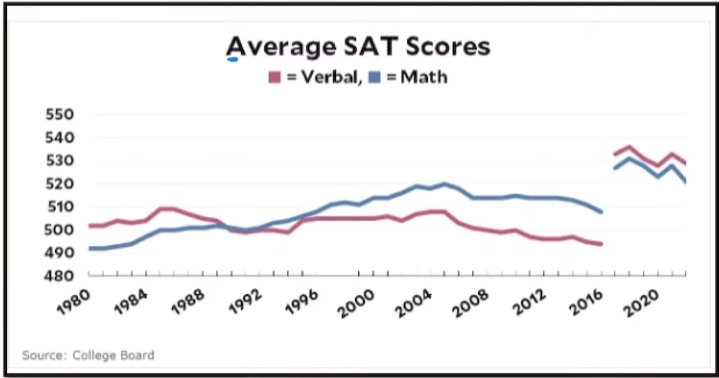
A ONE INSTITUTE
Feb 5, 2025
Today, we are posting the second part of the unanswered Q&A from our December online seminar.
On December 11, 2024, we held an online seminar, and we are back with this post to answer all the remaining questions we received during the session.
Question 1) Many people talk about Passion Projects. What are your thoughts on this topic?

To discuss Passion Projects, let's refer back to the table below:
Eight Essential Competencies for College Admission:
Science, Technology, Engineering
Language, Expository Writing
Humanities & Social Science
Arts & Athletics
Communication & Leadership
Culture
Quantitative Reasoning with Data
Volunteer
For the answer to this question, we revisit this table once again.
Passion Projects can be conducted within a school club or externally, but it is beneficial to consider the eight categories listed above. The best approach is to work across multiple fields to achieve one purpose.
For example, during the seminar, we discussed a project aimed at helping students from multicultural families with their after-school activities. This purpose can be pursued through activities in Science Research, Essay Writing, Community Volunteering, and Cultural Engagement.
Best strategies for Passion Projects:
The most effective strategy is to pursue a project with a clear purpose.
A secondary approach is to engage in multiple Passion Projects, as colleges appreciate diversity in extracurriculars.
However, keep in mind that a strong GPA is a prerequisite for these activities to be impactful!
Question 2) You mentioned that sports are important. My child has been consistently swimming in a club team since elementary school, but as an 11th grader, they have not reached the national cut level. Should they quit? To what extent should they continue? It is very time-consuming.
Question 3) I apologize for comparing different viewpoints, but some advisors recommend quitting sports or music if the student is not excelling and instead focusing on their strengths. However, you emphasize the importance of continuous participation in a sport even if the student does not become a varsity player over four years. Could you clarify your perspective?

Many parents and students ask similar questions during individual consultations. Let me explain why I emphasize sports participation.
Colleges assess applicants based on different rating categories, typically:
Academic
Extracurricular (EC)
Athletic
Personal
Applicants receive scores from 1 to 6 in each category, contributing to an overall rating. The rating system we refer to is similar to what Harvard's first readers use when evaluating applications.
Regarding athletics, participation may be assessed either under the EC category or separately under Athletics, depending on the admissions officer's discretion.
Why I emphasize sports: When I see a student who has participated in a sport for several years, I assume they have developed teamwork, perseverance, and discipline. However, I strive to base my guidance on data and documentation rather than personal assumptions.
Here is how sports performance is generally rated:
1st Tier: Unusually strong prospect for varsity sports (exceptionally rare)
2nd Tier: State-level athlete
3rd Tier: Active participation with some leadership and recognition at local or conference level
4th Tier: Neutral (no significant sports involvement)
If a student actively participates in a sport, they can at least achieve a 3rd-tier rating. However, quitting sports could result in a 4th- or 5th-tier rating, lowering the applicant's overall athletic category score.
So, should my child quit sports?
If their return on investment (ROI) is low and quitting allows them to significantly improve in another category, then reallocating time could be a viable strategy.
If they can’t secure a game-changing improvement elsewhere, continuing sports at an active level will at least help maintain a competitive rating.
If the student is at the state or national level, investing time in sports is worthwhile.
Otherwise, consistent participation, even without a varsity position, is valuable.
Question 4) My child has been playing tennis (JV) and participating in the Choir (Varsity) at school since 9th grade. Should they continue? They enjoy tennis but are not highly skilled. Since these activities are part of the school curriculum, they cannot take other elective courses. Is it better to maintain these activities or replace them with other subjects?
Even within the 3rd-tier rating, there are 3+ and 2- sub-ratings.
To ensure they stay within the 3rd-tier boundary, maintaining Choir (EC) and Tennis (Athletics) is a solid choice.
However, if dropping these activities allows them to significantly improve another category’s rating, they may consider quitting. Rather than just deciding whether to continue or quit, evaluate whether quitting provides valuable time for a more impactful activity.
If participating in a meaningful Passion Project or Volunteering could significantly enhance their profile, switching activities might be beneficial. But if no stronger alternatives exist, continuing is recommended since consistency over four years is an important evaluation factor.
Question 5) My child is involved in a regional youth orchestra since our school does not have one. It is the best orchestra in our state, but they are not in a leadership position. As a 9th grader, will this be a strong EC if they continue?

For time-intensive activities, ROI (Return on Investment) should always be considered.
Here is how performance in orchestra and music is typically rated:
National level: Tier 1
State level: Tier 2
Long-term active participation: Tier 3
School representative or notable participation: Tier 3+
Neutral/No activity: Tier 4 (0 points)
Since the student is participating in the best orchestra in the state, they likely fall between 3+ and 2- tiers. Without a leadership position, they won’t reach Tier 2, but they are still above standard Tier 3.
If they can replace orchestra with another activity that would yield a higher rating, switching could be an option. If not, maintaining participation is the best strategy.
Question 6) Have SAT score requirements increased significantly because of test-optional policies, or have overall SAT scores risen?

The table above presents SAT score data by institution. The left column shows pre-pandemic data from 2019, while the right column contains the 2023 data from our recent presentation.

When comparing percentiles, the 75th percentile remains nearly the same at around 1590, whereas the 25th percentile has slightly increased. The number of international students initially increased, dipped during the pandemic, and then rose again, contributing to a higher overall average. This is because the international student average tends to be slightly higher than the local student average.

If we look at average SAT scores, there was a significant shift in 2016 when the SAT format changed, and another major transition is happening in 2024 with the shift to a digital SAT. Scores initially increased in 2016 but slightly declined over time. Since the SAT is now optional, primarily students with strong scores choose to submit their results, thereby increasing the reported averages. However, despite this upward trend due to international student growth and the 2016 format change, the 25th to 75th percentile range has remained relatively stable.
Question 7) Is there a significant difference between taking both AP Lang and AP Lit versus just one?
Looking at the past 3-4 years of our academy’s Top 20 university admits, almost 100% of students—regardless of STEM or non-STEM fields—have taken either AP Lang or AP Lit.
During our session, I mentioned that strong English skills serve as a critical factor in strengthening a student’s application. Taking AP Lang or AP Lit demonstrates proficiency in high-level English coursework, making it a solid component of a well-rounded application. While SAT English scores, TOEFL scores, and writing competitions are valuable, the most fundamental indicator of academic rigor is how well a student performs in challenging school coursework. This is why we recommend taking AP Lang in 11th grade and AP Lit in 12th grade.
If asked whether taking both is necessary, I wouldn’t say it’s an absolute requirement. However, many students take both because AP Lit is the next logical step after AP Lang. We do not recommend taking a lower-level course in 12th grade, so enrolling in either AP Lang or AP Lit with at least a B+ grade is essential.
Question 8) I am choosing my 10th-grade English course. Should I take Grade 10 English Honors or AP Seminar? I’m worried that AP Seminar may be too time-consuming.
While AP Seminar is more time-consuming, I strongly recommend taking it. Since you have already taken a standard English course in 10th grade, adding an AP course will be an advantage.
The primary purpose of AP Seminar is to develop research, seminar, and academic writing skills. This course involves analyzing articles, research papers, and videos while learning evaluation methods and writing strategies. The experience is similar to conducting academic research—students formulate a hypothesis, conduct research, and draw conclusions, which significantly enhances their analytical skills.
Simply taking AP Seminar demonstrates academic ability. If your school has specific eligibility requirements for AP Seminar, I highly recommend enrolling. However, if taking AP Seminar conflicts with two other AP courses, consider the trade-offs carefully before making a decision. Since no such scheduling conflict was mentioned, I suggest taking AP Seminar.
Question 9) I want to apply to engineering schools. Is it better to attend a university with a strong overall reputation or a school known specifically for its engineering program?
You’re asking whether it’s better to attend a school with strong engineering rankings or a university with higher overall prestige but a relatively weaker engineering program. Some of the top engineering schools include:
Purdue
Georgia Tech
UIUC
Texas Austin
Texas A&M
Virginia Tech
If you’re wondering which option is easier to get into, I can confidently say that engineering-focused schools tend to be more competitive for engineering admissions. However, once in the workforce, career success depends more on the individual rather than the school attended. Graduates from well-known engineering schools can be found in various companies and departments, ensuring that a specialized engineering school can provide excellent career opportunities.
That said, the final decision should align with your personal preferences and strengths.
Question 10) Since my cumulative GPA includes grades from 9th to 12th grade, does it matter if my 9th-grade GPA is low?
The ideal scenario is to maintain strong grades throughout all four years of high school. However, if there is a weak academic year, it is better for it to be in the lower grades. Universities prefer to see an upward trend in academic performance, so improving as you progress through high school is essential. If you struggle in 10th grade, make sure to perform even better in 11th grade.
As mentioned in our session, UC Berkeley emphasizes the "pattern of grades over time." This means that a steady improvement from 9th to 12th grade is valued.
If you attend a competitive high school, don’t worry too much about a slightly lower GPA—universities compare applicants within the same school. As long as your GPA remains competitive within your peer group, you should still be evaluated favorably.
Question 11) Is it beneficial to take an online summer Spanish course for enrichment? Would taking extra math courses in advance also create a good impression?
Question 12) Instead of taking AP Bio at my high school, should I take a college-level biology course during summer and earn credits?
If your high school offers a particular subject, it is best to take the course within the school rather than at an external institution. Admissions officers may find it questionable if a student chooses to take a course outside their high school when it is already available in their curriculum.
External courses should only be pursued after a student has completed the highest level available at their high school. In such cases, the additional coursework is viewed positively as an extension of the student’s academic interests. However, students should first prioritize taking the most rigorous courses their high school offers before seeking external academic opportunities.
Today, we’ve shared Part 2 of the Q&A session from our recent online information online seminar, addressing the questions we couldn’t cover during the live session.
For further inquiries, feel free to contact us at A-One Institute.
Thank you!

